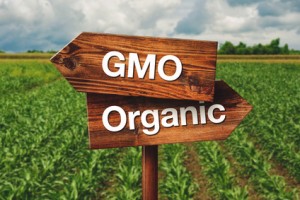
Winter has finally arrived with our first measurable snow of the season and the dropping temperatures. This can only mean that it is time to sit back in your favorite chair and start perusing through that stack of seed catalogs. Don’t be confused when you come across seeds labeled non-GMO seeds. As most farmers already know, there are no GMO vegetable plants for sale to garden growers. All vegetable seeds have and continue to be non-GMO crops.
GMO vegetable seeds do not exist and are not available to backyard gardeners.
In fact, there are only eight crops commercially available as GMOs: corn, soybeans, papya, cotton, squash, canola, alfalfa and sugarbeets. GMO squash isn’t available for the backyard gardener, only on a commercial scale.
Nearly 90% of US field corn has been genetically modified to kill insects or tolerate herbicides. This corn is used to make the corn flour, cornstarch, corn syrup and corn oil typically found in processed foods.
Our country’s love of wholesome, homegrown foods has been paralleled by distaste of GMOs, even though most people don’t even know what it stands for or what it means. No studies have definitively connected GMOs to any health problems in humans. However, there is concern about GMOs, but it’s not what you think; as pests have developed resistance to some GMO crops, farmers have had to go back to using pesticides, and it’s the exposure to pesticides that has been connected to negative health effects.
Fortunately, the EPA limits the amount of pesticides allowed on food. The bottom line is that GMOs are likely OK, based on what is known at this time. But if you’re worried about your GMO load, buy organic whenever you can AND stay away from processed foods.
Yet another reason to get busy on your garden blueprint!
Obviously, most people would deduce that seeds labeled non-GMO seeds would probably be better than those not identified as non-GMO, and they would prefer to put non-GMO vegetables into their bodies. But remember, garden grown vegetables are not GMO crops and never have been. By labeling vegetable seeds as “non-GMO,” it has opened a whole new crop debate that shouldn’t even be on the table!